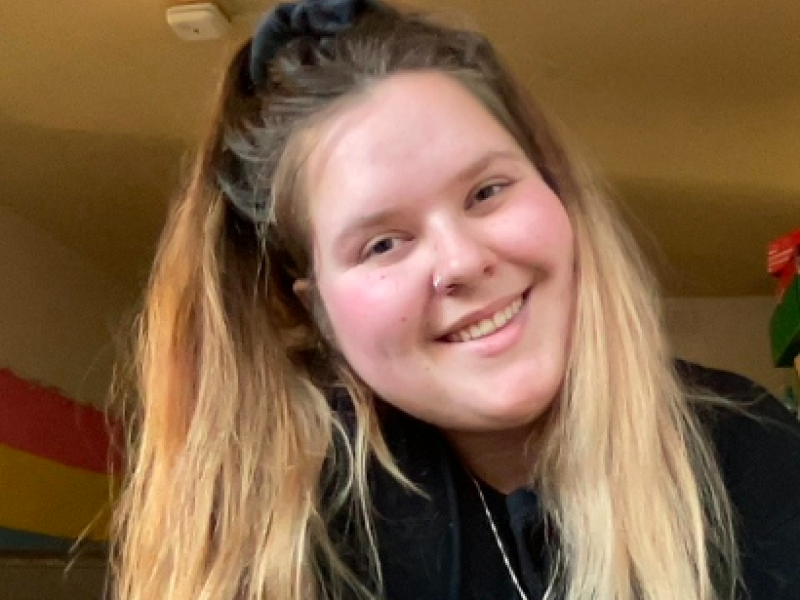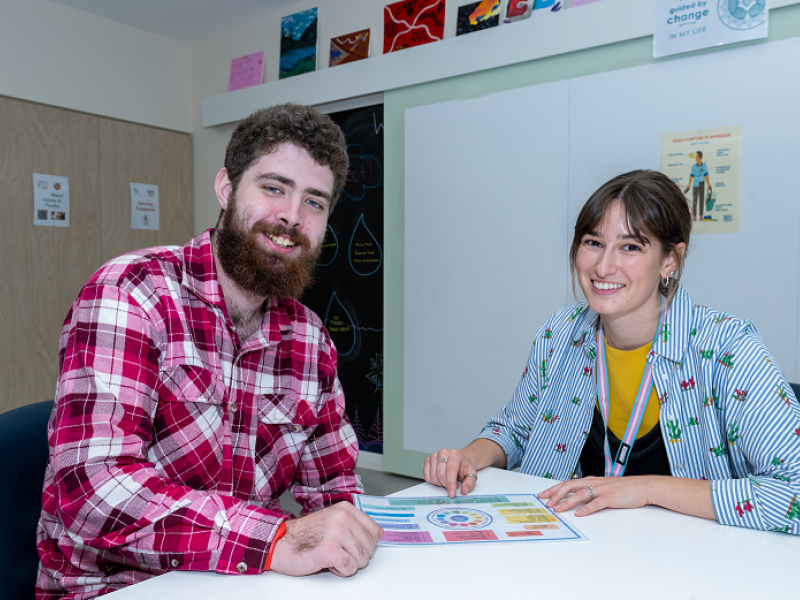Amy Falconer is 22 and has a history of depression and anxiety which was first diagnosed at the age of 12. The Melburnian has accessed a number of Mind-run services over the past decade, is a member of Mind’s Lived Experience Advisory Team and is joining Mind’s Lived Experience Peer Cadet Program. Amy recently spoke to Fairfax journalists about her experience for the Enough podcast, including whether or not ‘young people have it harder than ever’. The below article covers some of the topics she discussed in her own words.
I was first diagnosed with depression when I was 12, so this has been a ten-year journey for me. When it comes to the idea of whether or not young people have it harder these days or if we’re some sort of “snowflake” generation, I think that the older generation was perhaps perceived as tougher because they were taught they had to be. They’re a bi-product of their time. You just had to suck it up and go on.
There was no stopping and talking and thinking about what you were going through – you just had to stuff it down and keep going. In a way, if that’s what you believe is toughness then they were tougher because they were taught they had to be. But I don’t agree with that.
Resilience – which is one of my favourite words – is so much more. It’s so much harder to understand and sit with and accept the issues and feelings and thoughts you have. It’s so much harder to accept that you have depression and understand what that means and try and adjust the way that you live to fit within it.
It’s harder to do that than push everything down and just keep going. It takes a lot of strength to sit with what people perceive as your faults and understand that this is not me, it’s not the only things I am.
I think everyone is talking about the pandemic and for good reason – it’s a world changing event the likes of which I’d never lived through before. There have been big impact disasters on previous generations but this is the first that my generation is living through.
I spent the first two to three years of my twenties in lockdown, completely isolated from the people I love, who give me strength. I understand why we had to be segregated but it didn’t make it easier.
Social media is also an issue that was not around for previous generations - it’s the same as hallway bullying or going to the mall and getting picked on but it happens online now which means when you’re alone in your bed at night, you can’t escape it. No going home and being safe at home. It doesn’t matter what the specific issue is, bullying or self-image, it doesn’t leave you, there is nowhere you can get away from it.
The cost of living is also crazy – I know a lot of young people and we joke about how we are never going to be able to buy a house. It’s like Elon Musk-level rich before you get to consider buying a house now. And avocado on toast? And going out for coffee? Just stop. I don’t drink coffee. And I don’t go out for avocado on toast because I can’t afford to, and I still can’t afford to buy a house.
There are a lot of circumstances in the world today which make things harder but on the flipside there is also a lot more awareness and acceptance and a lot less stigma around mental illness. It’s still there and it plays a huge part but it’s much better than it used to be.
These experiences teach me skills that other people don’t have. I have so much compassion and empathy and practical skills and time management and organisation skills because of my mental illness. I had to adapt.
I’m a great problem solver as well because I had to be. A lot of skills I wouldn’t have learned otherwise. Time management in school - no way, but when my anxiety demanded it, I could do it no problem.
I have this analogy of the pit - my depression is the bottom of the pit. It shows a lot more resilience to allow yourself to fall to the bottom of the pit and then crawl to the top again. That’s resilience.
- Amy Falconer
If you would like more information about Mind, please contact us via Mind Connect or phone: 1300 286 463.
If this article raises concerns for you, please call Lifeline on 13 11 14. Aboriginal and Torres Straits Islanders can also call 13 YARN (13 92 76) a 24/7 national crisis support telephone service staffed by Aboriginal and Torres Strait Islander peoples.
If you would like more information, please contact us.
1300 286 463
[email protected]









